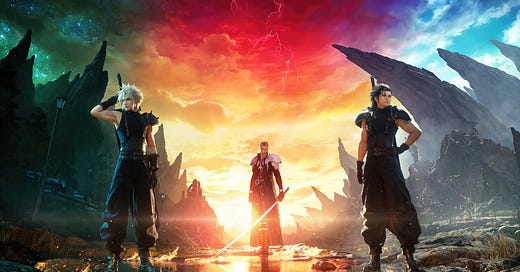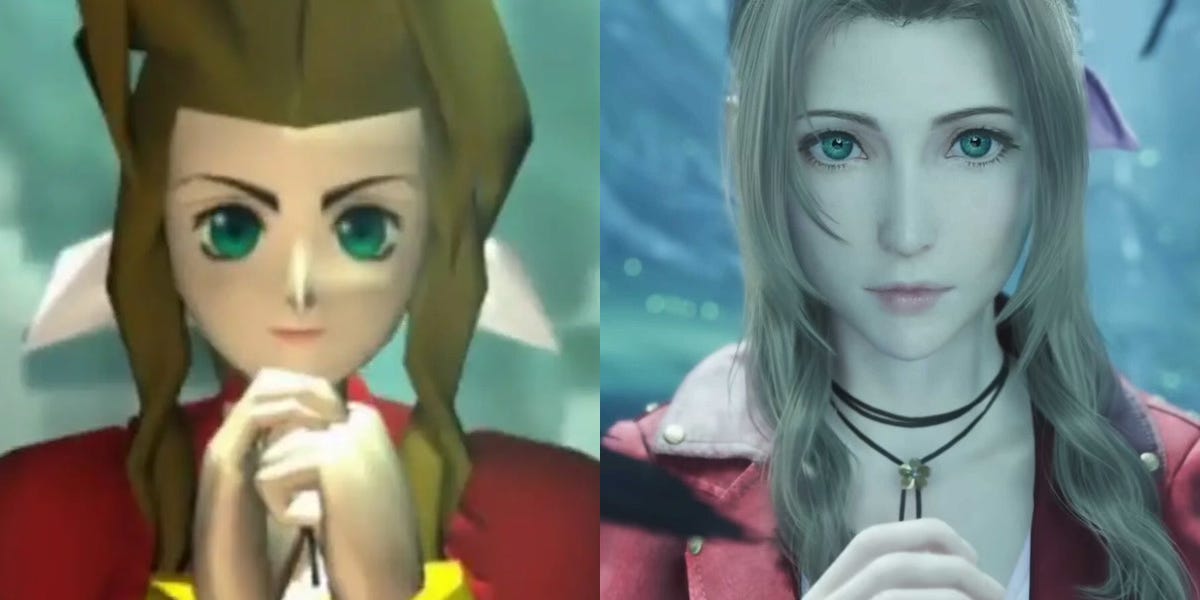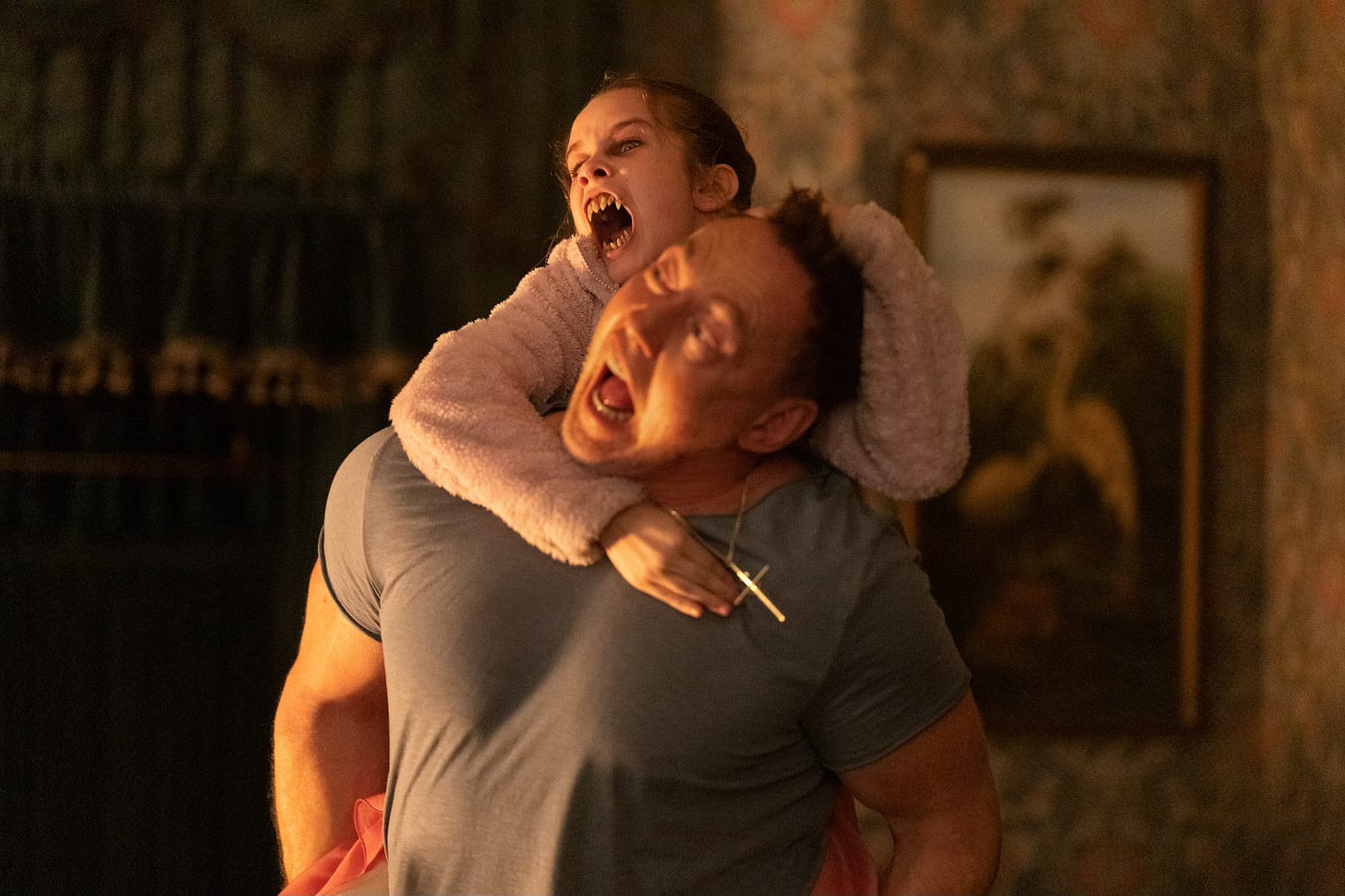After 'Rebirth'
I played over 90 hours of the new 'Final Fantasy VII' and have only myself to blame.
[Major spoilers ahead for Final Fantasy VII, Final Fantasy VII Remake, and Final Fantasy VII Rebirth]
I have been playing Final Fantasy VII Rebirth almost every day since it came out on February 29th. Seven weeks later (or 90 hours of game time), I finally completed the main story and felt…underwhelmed. To explain that deflated feeling, I have to back up a bit and provide a little history.
In 1997, Square (now Square Enix) released Final Fantasy VII on PlayStation. It quickly became one of my all-time favorite video games with its rich characters, detailed gameplay, and expansive story. Arguably the most memorable part of the game comes roughly a third of the way into the story when your party member/love-interest/healer Aerith is suddenly impaled on a sword wielded by the villainous Sephiroth. In mainstream video games to that point, death was typically a temporary condition remedied by extra lives, a healing spell, etc. But Aerith was narratively dead, and there was no way to bring her back into the story. Like in other mediums, that character death was a crucial part of the overall story, and it personalized the stakes for our surviving heroes in their quest to save the world by defeating Sephiroth.
Fast forward to 2020 and you have Final Fantasy VII Remake, a project that was rumored to be in development for years, and one that fans like me awaited with great anticipation. When it finally arrived, it did something exciting by becoming a meta-commentary on the nature of remakes. The story starts to unfold exactly like the ‘97 game but then brings in creatures called “Whispers” who are the “arbiters of fate.” Their job is to make sure things unfold along a predetermined path. Remake ends with you defeating the Whispers, and thus opening up a new world of possibilities where fans didn’t know where the story would go.
This left Final Fantasy VII Rebirth with the major question of whether or not you would be able to save Aerith this time around. It was a clever move because if Aerith was definitely going to die, then you wouldn’t invest time caring about her character. However, this presented the narrative problem of saving Aerith removes the personalized stakes for the other characters. Aerith’s death isn’t simply shocking in the original game; it serves a narrative purpose, and removing that big moment creates a vacuum where if Aerith lives then how can this new version be as dramatic as its inspiration?
If the narrative and gameplay decisions in Remake were inspired, then those in Rebirth feel a little tired. The thinking behind both the gameplay and the narrative is that “more is better,” and while at first I didn’t mind having more of the world to explore and things to do, by the end I felt that the designers weren’t making a richer game; they were only make a longer one. Throwing in some mini-games for gameplay diversity is fine, but once I got to, “You need to pick this mushroom in the correct fashion,” the game design philosophy really started to crumble because it didn’t feel like I was playing to have fun or to learn more about the characters or their world; I was simply doing chores. There was certainly more to do, but I found it increasingly difficult to accept that it was worth doing.
That approach of “more is better” spilled over to the narrative as the writers clearly wanted to hold the tension of whether Aerith lived or died, and instead they came to trying to have their cake and eat it too. The game plods through a bunch of multiverse stuff (basically your actions at the climax of Remake created a multiverse) only to come to a more convoluted manner of killing off Aerith. It feels like a decision crushed under the weight of compromises and second-guessing. You can’t have a “shocking” death for the character, and yet the writers felt she still needs to die. But if she dies, then what was the point of breaking the timeline in Remake?
The answer seems to be that in this new timeline, they wanted to give Aerith more agency over her own death. Rather than a shocking murder, Aerith essentially makes a noble sacrifice, giving her own life as a way of contributing to Sephiroth’s demise. Is that different than the ‘97 game? Sure. Is it better? I’m not so sure. I think trying to make Aerith a richer, more multidimensional character is the smart move because the player certainly cares about her. We don’t want her to die, but part of that desire stems from the overarching story of the Remake—why change fate to end up at the exactly same place as you did almost 30 years ago?
Whereas the conclusion of Remake felt like a bold, thoughtful step towards something different, Rebirth feels like a retreat to the same story with only the hint that perhaps in the trilogy’s concluding chapter (probably due out in 2028 given development timeline of these games) might change the story again. Of course, why should players trust that the writers will do anything different when they simply returned to the same plot point but added more window dressing? Where Rebirth lands is “Aerith is now a ghost that only Cloud can see just like he can only see the rift between universes, and this is somehow interesting because…?” That doesn’t inspire a lot of confidence for wrapping up the story.
To be fair, Rebirth has a tough task by virtue of being a middle chapter. Remake set up a new world, but Rebirth can’t complete the story (a major plotline deals with how Cloud, the story’s protagonist, can’t trust his own memories, and that won’t be resolved until the last game), so it tries to use Aerith’s death as its narrative climax. And yet as the game tried to have Aerith be both dead and alive (multiverses can be neat narrative devices, but they can also devalue all the stories since everything is possible in all timelines), I couldn’t help but feel a great ambivalence as I set down my controller and let the credits roll. I had spent 90 hours in this world playing not just the main story but also doing side-quests and mini-games, and yet I felt that where the story mattered most, the developers chose to hedge. What I love about the original ‘97 game and 2020’s Remake is that they balanced a compelling story with fun gameplay. If those games feel like finely prepared meals, then Rebirth is the buffet, and while there’s nothing inherently wrong with a buffet, no one will confuse it with high dining.
What I’m Watching
So much stuff that I’m gonna break it down a bit!
In Theaters
I went to see Abigail, and I had quite a bit of fun with it. The movie does what it promises—some crooks kidnap a little girl for ransom, but whoopsie, the little girl is a vampire, and so the bad guys start getting picked off in various gruesome ways. Not the deepest film ever, but it feels in line with the kind of mansion-based comedy-horror of directors Matt Bettinelli-Olpin and Tyler Gillett and co-writer Guy Busick’s 2019 movie, Ready or Not. I also feel like there’s far more room for these filmmakers to be clever and creative than having to do the franchise stuff they did with Scream (aka Scream 5) and Scream VI where you’re not only serving the needs of nostalgia but what people expect from a Scream movie (slasher-whodunnits with some genre/film industry commentary).
I also caught Ghostbusters: Frozen Empire, and I liked it more than I expected, although that’s probably because I had rock-bottom expectations. I just have to kind of accept that we’re not going back to the appeal of the original Ghostbusters, which is a comedy that happens to have some action scenes. What Ghostbusters is now is an action movie that happens to have jokes. It’s also not the kind of the legacyquel like Creed or The Last Jedi that’s going to interrogate the history of the franchise and try to do something radically different. Accepting it on the level of some fun jokes and a good performance from McKenna Grace’s young Phoebe Spengler made it an enjoyable and highly disposable movie. Should it be more than that considering the legacy of the 1984 original? Perhaps, but maybe we don’t really need Ghostbusters sequels anyway.
Rentals
Fun fact: You cannot find John Sayles’ 1987 movie Matewan on any streaming service right now. Thankfully, I live in Atlanta, and Atlanta has Videodrome, one of the few remaining video rental stores in the country, and they had the Criterion Blu-ray for rent. I’m so glad they did because I loved this movie, which is based on the 1920 Battle of Matewan where the mining company went to war with striking workers who wanted to unionize. In addition to the great performances and stunning cinematography, I love that Sayles gets into the difficulty of union organizing, particularly highlighting how management seeks to divide labor by pitting workers against each along race and ethnic lines. This monologue by Chris Cooper, who plays union organizer Joe Kenehan, does a great job of explaining the larger stakes of the fight:
I also watched Steven Soderbergh’s Kafka as part of my upcoming First Five article about his movies. I’ll have more to say in that article (an exclusive for paid subscribers), but for now I’ll note that the ambition that has marked Soderbergh’s entire career is present in his second feature.
On Streaming
With the recent death of O.J. Simpson, Netflix put Ezra Edelman’s Oscar-winning 2016 documentary O.J.: Made in America on their service, and so I’m rewatching it alongside my wife who hasn’t seen it yet. The five-part series is one of the best American documentaries ever as it uses the story of Simpson as an exploration into larger streams of American conflict regarding race, the media, what Americans choose to see, and what they choose to ignore. The Simpson trial was a circus, but Edelman never treats any of this story with frivolity, which gives the story the weight it rarely received as events unfolded.
I’m also continuing to watch X-Men ‘97, which is not letting up in how hard it’s going with the drama. For IGN, I wrote about how the new series honors the original by keeping the mature, more melodramatic storytelling that distinguished the show from other animated series of the time.
What I’m Reading
I finished reading Naomi Klein’s new book Doppelgänger: A Trip into the Mirror World, and felt a bit underwhelmed. It has a great hook where Klein starts off by talking about how she was frequently confused with fellow author Naomi Wolf, but Wolf went from liberal causes to the conspiracy-laden world of the authoritarian right. Klein tries to understand what would cause such a transition by not only Wolf but others who typically wouldn’t find common cause with the Steve Bannons and Tucker Carlsons of the world.
Klein’s best observation is that the right is getting better at coalition-building by pushing towards fantastical culprits with a clear action plan despite those culprits being largely fictional. Essentially, the grievances (mass surveillance, the power of Big Pharma, etc.) are real, but because the left isn’t making the case for addressing how to defeat these ends (regulating Big Tech, not letting pharmaceutical companies run roughshod over people who need medicine), it leaves a gap for people like Wolf to say that it’s all a conspiracy by Bill Gates putting tracking devices into vaccines or something. Furthermore, rather than simply exiling people from liberal causes, we need to find a way to reach them because those we don’t reach will simply fill the ranks of right-wing ideologues who have no interest in addressing the true origins of our discontent.
Where Doppelgänger goes wrong for me is that as someone who is already well aware of liberal policies and right-wing tactics, there’s little here that I didn’t already know. Furthermore, while Doppelgänger starts at an interesting place of how we create online doubles (similar to Wolf remaking herself for an online audience), it eventually balloons to try and take a variety of social ills and label them as a form of doubling, which isn’t particularly useful or interesting. Can Klein stretch her Doppelgänger metaphor to cover online algorithms, racial injustice, COVID, anti-vaxxers, the conflict in Israel, and climate change? Sure, but that simply speaks to the elasticity of the metaphor, not that Klein has found anything particularly insightful to say about these topics.
After the stress of reading Before the Storm and Doppelgänger, I need to retreat into something lighter, so I’m going to my comfort genre: expeditions where things go horribly wrong.
In other reads:
Welcome to Scam World by Steven Kurtuz [The New York Times] - For all the talk about how crime is on people’s minds (even though violent crime is decreasing), the crime they’re referring to is typically some kind of interpersonal crime; the “stranger in a dark alley” crime. But we’re letting scam crimes run rampant. It’s difficult to even hold the scammer accountable since they could be someone in a foreign country forced into laboring on a scam farm for some crime syndicate. However, while there are obviously financial consequences to such scams, there are interpersonal ones as well. The Internet promised connectivity, and yet so many scams are running rampant the point where we can’t trust an incoming call or text. Societies need trust to function, and the prevalence of scams are another way that our current technology wears away at that trust.
What I’m Hearing
I am not immune to the forces of cultural storms, and so naturally I (like millions of others) found myself listening to Taylor Swift’s new album, The Tortured Poets Department. I found it kind of meh. Part of the issue is something I feel about a lot of Swift’s music, which is that it sounds the same. It’s not a bad sound, but so many of her songs blend together for the casual fan like me. But another part of the problem is that Tortured Poets arrives with Swift at the height of her cultural dominance. The success of the Eras tour combined with the success of her 2022 album Midnights has brought her more praise, power, and attention than any other point in her career, and yet with all of that, Tortured Poets feels pretty conservative. It’s more songs about bad boyfriends, and while that’s what her fans clearly go for, it feels like Swift defending her position as a brand rather than artist seeking to find new avenues for expression.
For a new album that’s quite good, be sure to check out Trent Reznor and Atticus Ross’ score for Challengers remixed by Boys Noize. Why the mix album is available but not the regular score is beyond me, but any Challengers is good Challengers. Be sure to see the movie when it arrives in theaters on Friday.
What I’m Playing
Because I’m dummy for artificial achievements, I’m still plugging away at some Final Fantasy VII Rebirth trophies, but I’m not going to complete them all before moving on to something else (it would probably take another 90 hours if I tried). I had considered making The Last of Us Part II Remastered my next game, but honestly, I think I need something a little more playful and uplifting, which means I’m probably going with Dave the Diver.







